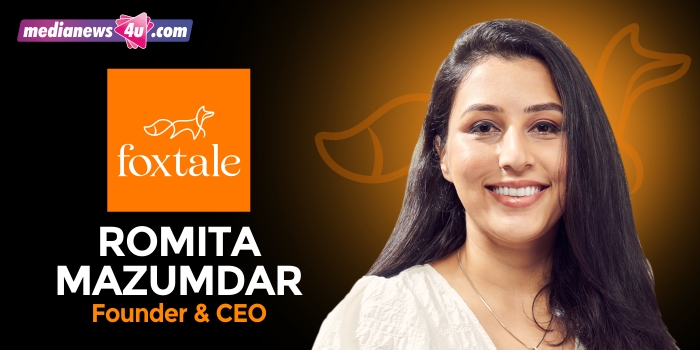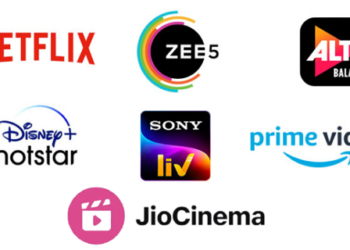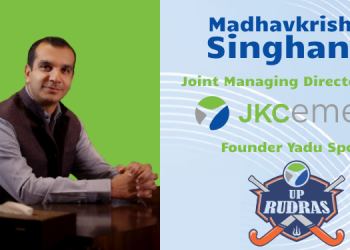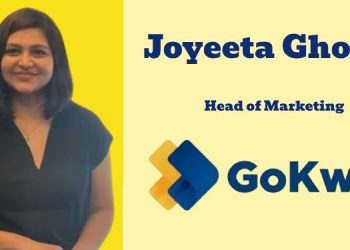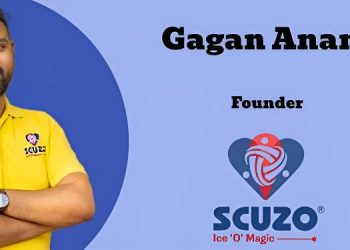When former investment banker and VC investor Romita Mazumdar decided to turn entrepreneur, she had seen a bit of the Indian startup world. As someone who handled growth-stage investments, she gained an understanding of the consumer tech space working with the likes of Rebel and Zoomcar. Her choosing to enter the skincare category – in January 2022 – with D2C offering FoxTale was dictated by two things.
The first involved the scale and margins that the category would allow. She wanted to create a Rs.1,000 cr consumer brand with 20 pc EBITDA – a high growth, high profit company.
“I had spent four years looking at businesses and founders. Over time I saw that founders can have operational experience, and secondly where the founders themselves are power users of that category. Because then they can get what the consumer wants and they care very deeply about it. And as a result, quality comes out to be really superior and you are able to market it the right way,” explains Mazumdar.
FoxTale claims a revenue run rate of Rs.150 cr in 18 months of operations, with sales of over Rs.100 cr to date. It is also profitable, reveals the Founder.
Around 50 percent of the sales comes from repeat consumers. That’s aligned with what she set out to do, based on what she witnessed in the D2C space. The stated ambition of the startup was to provide consumers with premium skincare products at affordable price points – and to change the dynamics of return rates.
Less than 1 pc of FoxTale’s marketing budget, which is roughly 25 pc of revenue, is directly attributable to acquiring new customers now.
After the category choice was made, it was also critical to get the right products in at launch to achieve these numbers.
Differentiation
“It was very important to pick the category that is high growth and high profit but also a category that I have a deep understanding of. Skincare fell into that. It was mid-2020 and that time I myself spoke with 108 brands. So I knew how fragmented the category was and everyday there was a new brand coming up. But there was a gap,” explains Mazumdar.
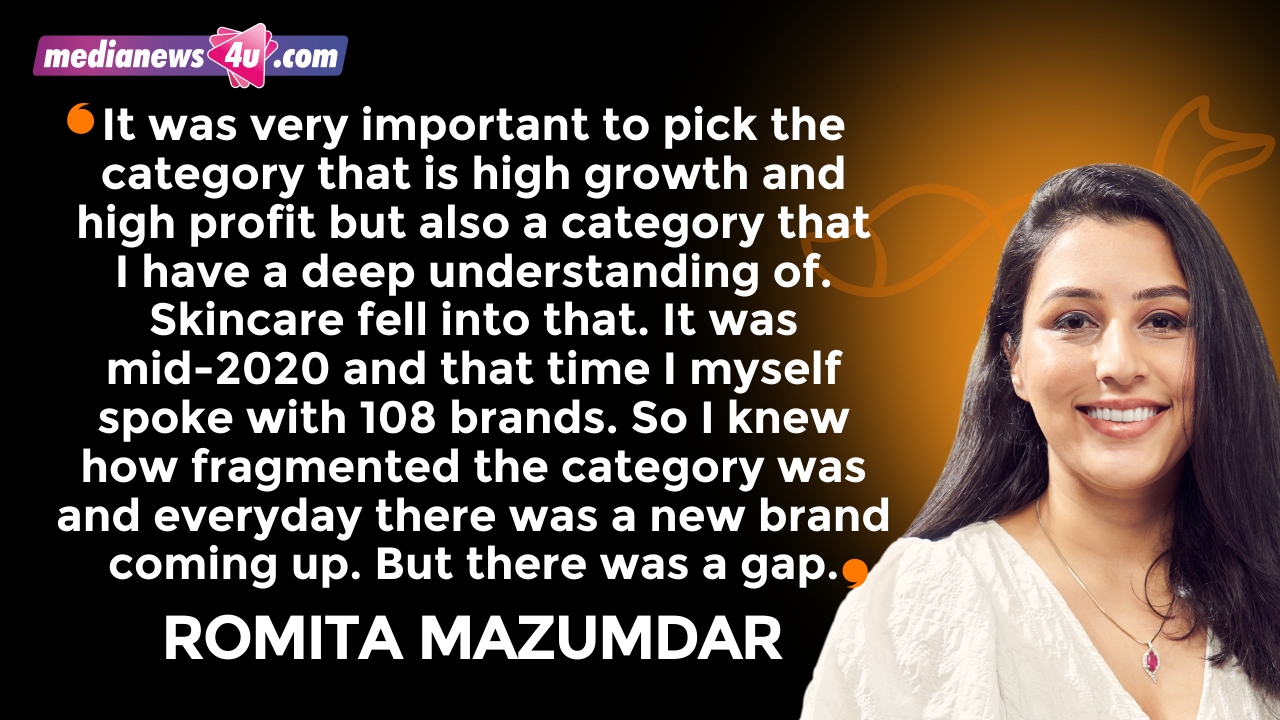
On the one hand, she spoke with brands and on the other, to the ones who buy those brands and use them. She interviewed 1,937 women across 10 Indian cities. She realised that the problem faced by people was efficacy.
“One of the biggest things that I learnt is that a trend is only an effect. What a user is really chasing is a product that is safe and actually works on the skin. When it comes to skincare, women want results delivered faster. No one has four to six weeks to use a product and be motivated enough to keep using it to see results. Women want products that deliver results and deliver it fast. That was a product-led problem,” elaborates the entrepreneur in her late 20s.
That inked the strategy – to create products which can deliver results early. Users would then keep coming back to the product and FoxTale could create a business that had customers with high lifetime value. Its consumer acquisition cost for those users would be a one-time spend.
“As she keeps coming back to buy the product, you end up making money. So, you grow fast, you make money and most importantly, have something called loyalty or defensibility in the D2C world which is very unheard of. There’s a reason D2C in India has not been able to expand,” she says.
Product is Queen
Mazumdar recalls interviewing scores of product formulators. An overwhelming number of them told her about Dr. Ramesh Surianarayanan, who led Unilever’s R&D and formulation for years and had been a part of Himalaya’s R&D and tech teams, she reminisces. At Unilever, he is called the ‘Fair and Lovely Man’ because he was a part of the team who invented Fair and Lovely, reveals the Founder.
“He was in the making of the products that are pure category winners and continue to grow as much as they do and there is a lot of customer love. During 2020-end, I met him (he was retired and consulting with an FMCG company). I asked him if he can make products that work. He told me you can make products that are X percent efficacious for 70 pc of the population. So, we will always have someone for whom something is not working, but you can make products that are efficacious for 70 pc of the population,” she recalls him saying.
Her next question was why other brands – which had all the money – were not doing it.
“He told me that it can take years because it is not as simple as getting the best ingredients and creating formulations, it’s about testing on all the different skin types in India. There are more than 300 to 400 skin types in India because everyone lives in a different area and on top of that, there are so many other factors. You and I can have the same skin type but we can eat completely differently, we can be in completely different weather, have different stress-related issues and so many other factors that affect your skin. Skin is eventually an organ. It takes a lot of time to do that kind of rigorous testing and a lot of discipline before you launch the product. Second, you don’t know the cost of producing that product (beforehand) because you need to use the best quality ingredients,” adds Mazumdar.
Eventually, she told him about the amount she could invest and asked him to set up a lab. Her promise was that whenever the product was ready and at whatever price, she would take the responsibility of selling it.
“And even if I can’t sell it, I told him that I want products that I can use for the rest of my life. That’s how we started our first R&D lab in Chennai. It took us a year to make just four products,” she recalls, with Dr. Surianarayanan as Head of Product – Research and Development.
The ask was that the product should deliver results in the safest way and in the least amount of time possible.
“I think we are one of the very few brands to hit a revenue (run rate) of Rs.150 cr in 18 months of operations. Most importantly, we have done it on the back of 10 to 11 SKUs,” she adds.
Portfolio, Distribution, Marketing
According to Mazumdar, within skincare in India two primary formats work: (i) face wash and moisturiser cleansers and (ii) serum and sunscreen. FoxTale’s offerings can also be categorised as fundamentals and treatment products specific to certain use-cases. For FoxTale, face wash and moisturiser contribute to 40 pc of the sales, while the higher priced sunscreen and serum bring up the rest.
Packaging is another aspect where the brand has tried to differentiate itself, with every product donning a different colour with a distinct name and personality who inspired it.
Sales is dominated by the brand’s own website, even as marketplaces like Amazon and Nykaa remain big channels for the company. Both are likely to grow, says Mazumdar.
Besides its own site and online marketplaces, FoxTale retails offline through general trade in 10 cities – Mumbai, Delhi, Chennai, Kolkata, Aizawl, Ranchi, Chandigarh, Ahmedabad, Surat and Baroda. It intends to scale up from the present 2,000 stores to more outlets in these cities, before expanding its footprint.
The brand has an affiliate programme called Beautypreneur for influencers and resellers that it launched in 2022. It has seen over 5,000 sign-ups to date. The company did not reveal their contribution to sales. But this community is part of the lab trials for product launches, receives tips to grow content and invites to events. Members can earn at least 20 pc commission on every purchase from their referral link/coupon code, informs the company website.
On the marketing front, digital is front and centre.
“We are mostly a digital-driven marketing company. It’s a combination of Meta, Google and influencer marketing. For us, marketing really means listening to the consumers. First you create a product that solves the problem. Then if I talk about the problem that resonates deeply with you, you will end up buying the product,” reflects Mazumdar.
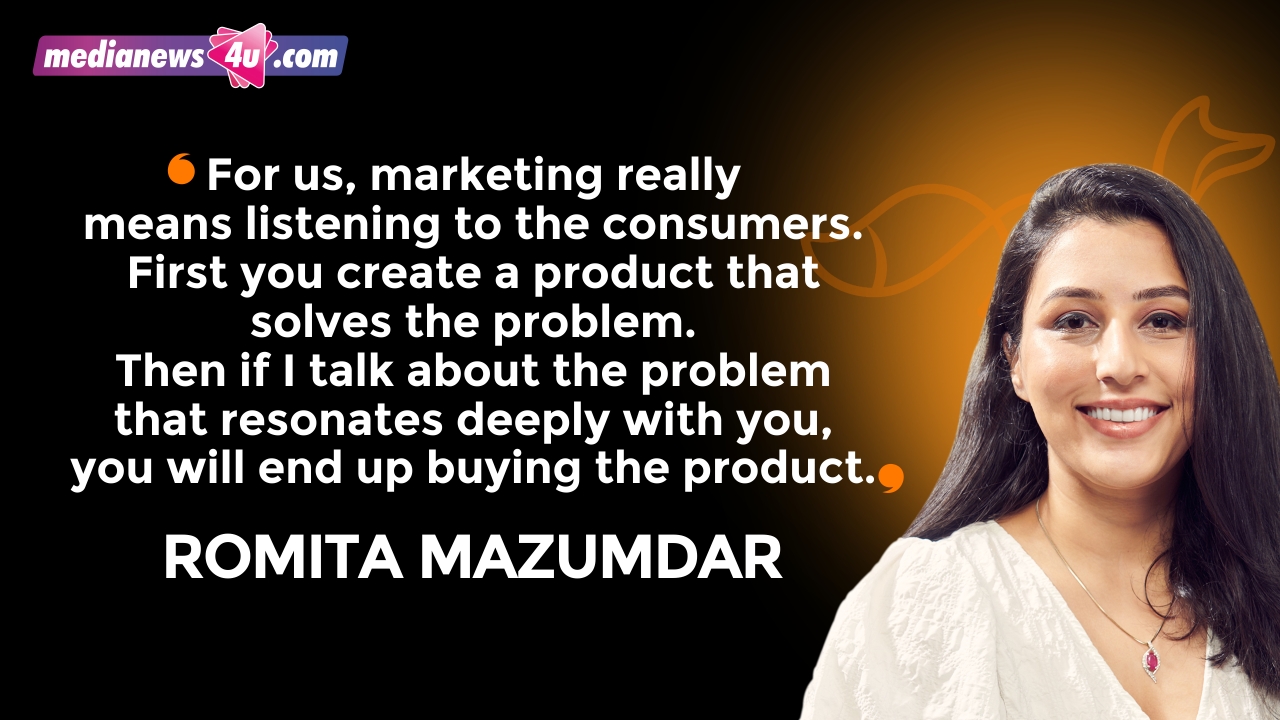
The shares allocated to performance, social and influencer channels will continue to stay the same, she notes, without disclosing the split. She adds though, “The roads of each channel will continue to improve especially for the non-performance marketing channels.”
The brand is slated to launch around 11 SKUs in the next six months.
“By the end of the year, you will also see us playing with products that are not just skincare but also can have an instant blurring effect. For example, we are creating a serum which can also act as a foundation. Not everyday do we have time to use foundation and not everyday we can use it because it clogs your pores. The new product is targeted to be skin-safe and also give you a look in which you can go out confidently,” surmises Mazumdar.
Another product is set to be born, from another consumer pain point.
(First published by The Free Press Journal BrandSutra. Content powered by MediaNews4u.com. Feedback: [email protected])

